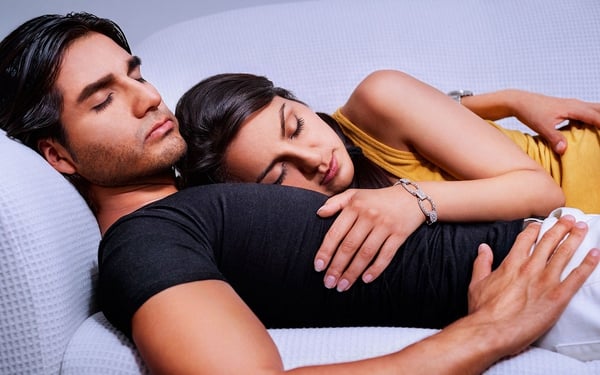
Sleep is a naturally recurring state of mind and body that is vitally important for restoring and maintaining many extremely important processes including immunity, cognitive function, restoration, memory and mood.
The National Sleep Foundation in the USA recommends that Adults (18–64 years) should get 7-9 hours of sleep.
Lack of and poor sleep quality negatively impacts one's quality of life.
Learn how to help yourself sleep better at night by incorporating these 11 practices into your day and night routine.
1.) Get regular exercise
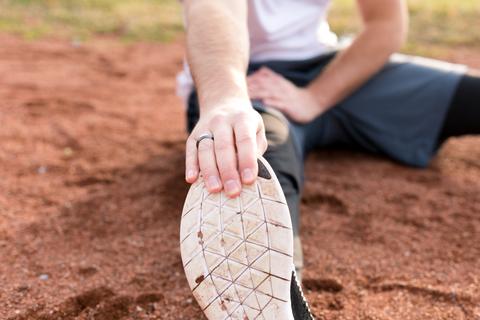
Regular exercise is vitally important for reducing stress and getting optimal sleep.
Weight bearing and heart healthy aerobic exercise keeps the natural stress hormone, cortisol, in check.
Exercise reduces the “stress hormone” cortisol
When you’re stressed out, your adrenal gland releases cortisol.
If you don’t work on reducing stress and excessive cortisol, the negative health consequences include higher anxiety, restlessness and poor sleep quality.
Daily exercise is important
Choose a combination of weight bearing and heart healthy aerobic exercise and do them on a regular routine throughout the week.
If your schedule only permits for exercise later in the day, plan to be done at least 2 hours before bed.
In addition to regular exercise, drink plenty of purified water and feed yourself a variety of nutrient dense foods.
2.) Eat moderate amounts of carbohydrates
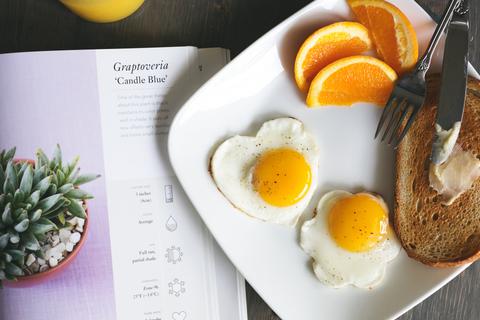
Carbohydrates and sugars effect another key hormone in the body called insulin.
This hormone is vitality important for ensuring that your blood sugar remains balanced throughout the day and night.
Balance blood sugar more efficiently with protein
Each meal and snack should include a small portion of lean protein. Protein helps balance the insulin that is released after you eat carbohydrates.
Most of us have experienced eating a large meal, feeling tired and then falling asleep fast.
At first glance, you would think this is a good thing. Not so.
The good, you go to sleep fast. The bad, you probably will wake up a few hours later groggy and unrested.
This happens because the blood sugar from your large meal shot up, and then when you fell asleep, your blood sugar dropped just as fast. A hormonal roller coaster!
Seek to achieve hormonal balance
Key takeaway. Eat smaller, well balanced meals and snacks spaced evenly throughout the day to avoid food induced sleep blood sugar problems. Don’t eat 2 hours before bedtime.
3.) Eat more magnesium rich foods
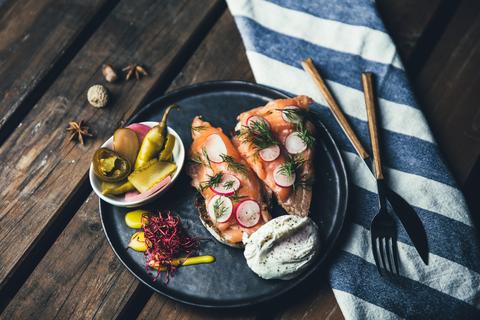
Magnesium is a powerhouse mineral and is involved in more than 300 different enzyme-related reactions in the body’s cells.
Magnesium has a calming effect on the mind and muscles and contributes to an array of healthy benefits including energy and metabolism, nerve function and bone building.
For the purposes of this article, let's focus on how magnesium relates to the calming neurotransmitter GABA.
GABA (full name, Gamma-Aminobutyric acid) is an amino acid produced naturally that plays a role in motor control, vision, and anxiety.
Magnesium has been shown to modulate GABA receptors in the brain and bind to benzodiazepine receptors resulting in an antianxiety / anxiolytic effect.
Low GABA activity can result in:
- Anxiety
- Chronic stress
- Depression
- Difficulty concentrating and memory problems
- Muscle pain and headaches
- Insomnia and other sleep problems
Excellent food choices high in magnesium include:
- Chia seeds
- Green leafy vegetables (e.g. spinach and kale)
- Pumpkin seeds (no hulls)
- Fruit (figs, avocado, banana and raspberries)
- Brazil nuts and seeds
- Legumes (black beans, chickpeas and kidney beans)
- Vegetables (peas, broccoli, cabbage, green beans, artichokes, asparagus, brussels sprouts)
- Seafood (salmon, mackerel, tuna)
- Whole grains (brown rice and oats)
- Raw cacao
- Tofu
- Quinoa
Eat magnesium rich foods everyday to help facilitate better sleep.
4.) Don't drink caffeinated beverages like colas, coffee and tea past 6pm in the evening
5.) Don't drink alcohol past 6pm in the evening
6.) Go to bed at the same time every day
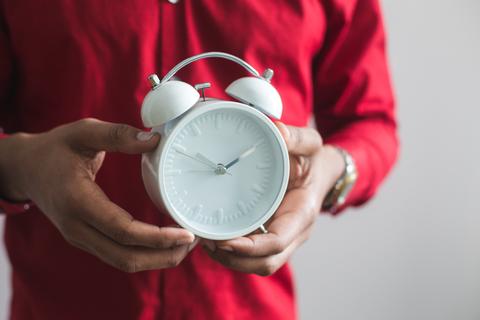
Get in the habit of going to bed at the same time every day. Doing this will ensure that your circadian rhythm is in sync.
As the day turns to night, your body will instinctively know every 24 hours what the appropriate time for sleep at night.
Set a reminder in your phone to let you know it's time to stop what you are doing at the same time each evening and start preparing to go to sleep.
7.) Stop watching TV & using electronic devices 2 hours before bed
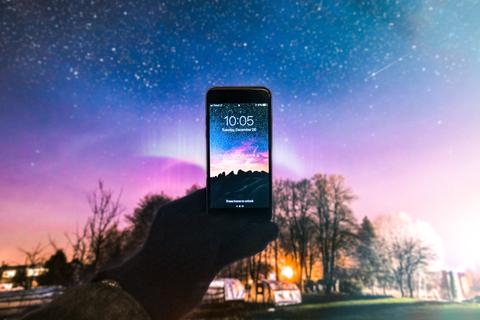
The human body starts producing the “sleep hormone” melatonin when the day turns to night and natural light fades.
Being exposed to artificial blue light later into the evening delays the circadian phase causing later wake-up time and later sleep onset. If there is continued exposure to light brightness (illuminance) as the evening progresses the delayed effect gets stronger.
If the pattern of being exposed to evening artificial light continues over time, sleep onset can become a problem.
Getting to sleep, staying asleep and having restful sleeps becomes more scarce. The result can negatively affect how you feel and function during the day.
Turn off your TV and computer and reduce your exposure to artificially lighting 2 hours before bed.
8.) Wear blue light blocking glasses in the evening
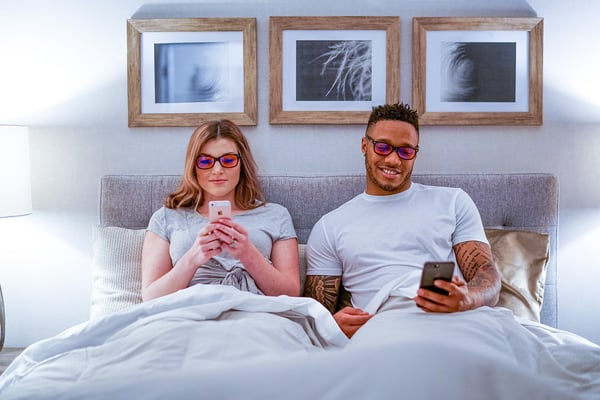
As the sunlight fades away and the day turns to night, the lights go on. Having indoor and outdoor lighting is one of the worlds greatest inventions.
Have you ever looked at a city at night when flying over it? It is spectacular to see. It is illuminated by light and can be seen miles away.
But, like all things in life, balance and moderate exposure is something to be mindful of.
Melatonin and sleep
 There is a lot of research, interest and real life experience on the use of blue light blocking glasses for reducing eyestrain and helping to increase the body's natural production of melatonin when worn 2 hours before bedtime.
There is a lot of research, interest and real life experience on the use of blue light blocking glasses for reducing eyestrain and helping to increase the body's natural production of melatonin when worn 2 hours before bedtime.
In the evening, wear blue light blocking glasses with dark orange lenses for optimal protection and results.
I recommend you pick up a pair of Couling Orange Optics Blue Light Blocking at one of our stores. They have unique lenses that block 95+ blue light, ideal for evening use when you want to keep your melatonin levels high before bed.
Related article - Wearing Blue Light Blocking Glasses At Night May Help Improve Sleep
9.) Body temperature is crucial for sleeping comfortably
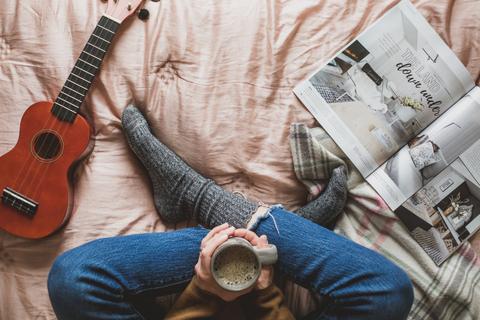
In order to get a good night's sleep, our body's need to be slightly cooler. The ideal room temperature for sleeping is between 60 and 68 degrees. Set your thermostat for this temperature range in the evening.
When you are asleep, your internal body temperature drops. The combined cooler room temperature and body temperature will help make sleep more comfortable and optimized for a good night's sleep.
If you prefer not to set your thermostat or turn off the air conditioning, wear minimal clothing and have light breathable sheets or wear socks to minimize heat loss through your feet.
10.) Sleep in complete darkness
Prepare your bedroom by using blackout shades or drapes. Even the slightest bit of light can affect staying asleep.
Remove night lights and alarm clocks from your bedroom.
Turn your cellphone off at night and do not have it on your bedside table or beside your head in your bed. You should never check your cell phone during the night. Looking at the bright screen will disrupt your sleep.
Wear a sleep mask that blocks all light.
If you insist on having a small amount of light in your room. Choose a red bulb.
Remove night lights and alarm clocks from your bedroom.Prepare your bedroom by using blackout shades or drapes. Even the slightest bit of light can affect staying asleep.
11.) Sleep apnea and prescribed medications
Speak to your physician and review any medications you are using. Some medications can interfere with sleep. Sleep apnea could also be disrupting your sleep. Your physician may schedule a sleep apnea test for you.
CONCLUSION
Consistent quality sleep is very important. Work on your sleep routine and reap the many positive benefits that doing so will produce.
Sleep well,
Graham


